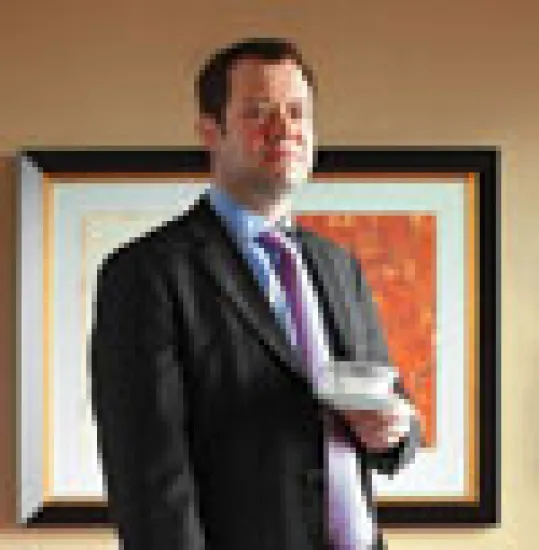Alistair Lumsden and Steven Swallow realized in December 2005 that they had a problem with their asset-backed investment strategy: Their employer, Dutch bank Rabobank Group, didn’t allow them to buy protection on any of their long positions.
But Lumsden and Swallow, who are longtime friends and colleagues, knew full well that the mortgage market that was underpinning the $10 billion in structured-finance assets they were managing for Rabobank was teetering. So when they were introduced to executives at London-based hedge fund firm CQS by a former
colleague, they made the leap. By October 2006 the CQS ABS Fund was up and running, and they were in charge of it, promptly turning their newfound freedom into profits.
In 2007, its first full year of operation, the ABS Fund delivered a net return of 45.18 percent; last year it did even better, returning 72.81 percent. It was a notable achievement in itself, even more notable considering that the hedge fund industry as a whole was down more than 18 per-
cent in 2008. The fund has been volatile — Lumsden and Swallow are constantly combating a seesaw market — but it has been down only six of the 27 months of its existence through 2008 and now has $500 million in assets under management.
Tumultuous as the mortgage market has been, the two friends fear the worst is yet to come as lower home valuations and widening unemployment force homeowners to turn in their keys. If defaults rise, ABS valuations may drop further than they have already, creating a nightmare scenario as middle-class borrowers with good credit histories begin to default. Global exposure to the U.S. alt-A mortgages, which fall between prime and subprime mortgages in terms of risk, totals as much as $600 billion — roughly the same amount as the U.S. subprime market. And losses may yet escalate.
“Even good loan originators in the U.S. who really understood the business threw sensible underwriting out the window during the real estate boom,” Lumsden says. “Almost everyone was engaged in massive lending with very few checks on the creditworthiness of the borrower or, to be honest, the valuation of the underlying collateral.”
The two men note that the mortgage market may not be the only one affected — they say they are more concerned about the potential impact on the monoline insurers, big companies like Ambac Financial Group and MBIA that write bond insurance.
Their worry is that these businesses could be rendered insolvent if defaults rise and they have to make good on their vast insurance commitments. Lumsden says it would create a domino effect on the ratings of all kinds of monoline-insured bonds — municipal and corporate — and that across-the-board downgrades would be sure to follow.
Lumsden and Swallow know whereof they speak. They have decades of experience at the hard edge of loan origination, securitization and investment. Swallow, who is head of European asset-backed securities at CQS and a portfolio manager of the CQS ABS Fund, started out in 1987 at NatWest (now part of the Royal Bank of Scotland Group) and spent a decade in residential and commercial property loan assessment before joining Abbey National Bank in 1997. Lumsden, who is head of ABS investing at CQS and the senior portfolio manager for the CQS ABS Fund, started his career at Abbey in 1993 as a trainee. He swiftly worked his way up, running a portfolio of mortgage- and asset-backed securities for Abbey National Treasury Services and taking primary responsibility for developing the bank’s $15 billion home-equity-loan portfolio before he joined Rabobank in 2001. (Swallow joined him there a year later.)
CQS, founded in 1999 by credit and convertible arbitrage expert Michael Hintze, today is a $7.5 billion firm that supports seven hedge funds pursuing strategies that include volatility trading in derivatives and directional and relative-value multistrategy credit arbitrage.
Having spent the better part of 12 years working together, the two 40-year-old friends have a cheerful way of stepping on one another’s sentences and finishing one another’s thoughts, but they take their division of roles seriously. The market crisis has them seeing things through a disturbingly dark lens.
“It is no longer just a credit crisis,” Lumsden says. “So I think where we go from here is going to be driven by the timing of any economic recovery, and that is a long-term issue.”






